Liam Manning
MK Dons, 2021–2022
I haven’t had many opportunities to step back and reflect on how far I’ve come since becoming MK Dons head coach.
League One is so relentless. The volume of games and the quality of the teams mean you barely have a chance to think.
There’s no sitting back and relaxing after a game finishes. You have a bit of time to look at the outcome of one match, and then it’s on to focusing on the next one.
But I did have one special moment back at the club where I’d spent most of my life.
My third game as head coach was away to Ipswich, where I’d been for 14 years as a youth player and then as a coach. I’d watched so many games in the stands at Portman Road, and here I was in the away dugout.
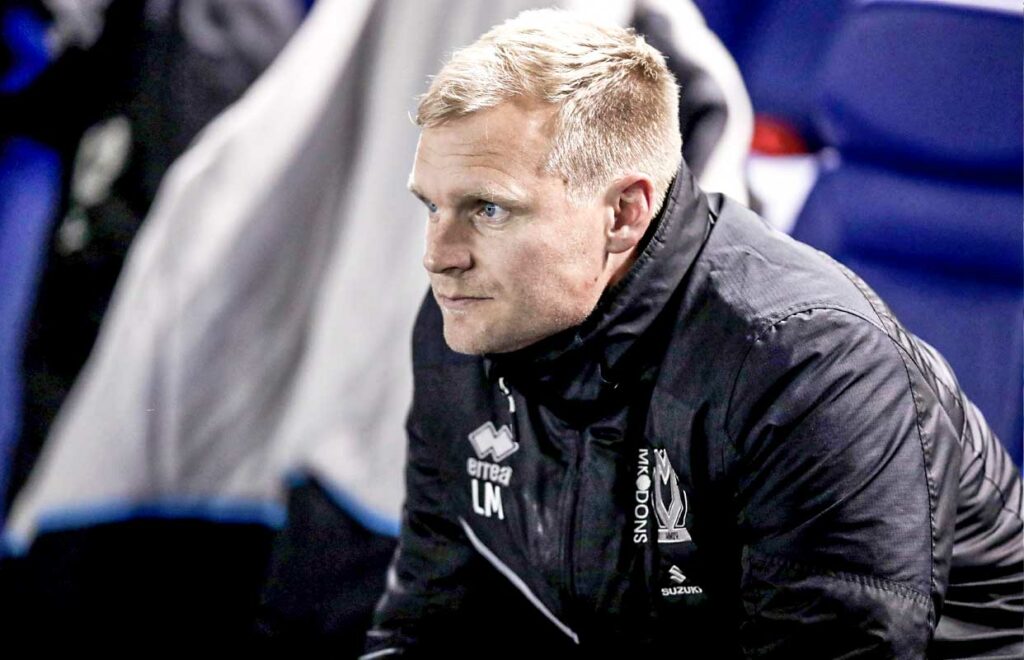
It was a great occasion, stood there with almost 20,000 in the stands. For a brief moment I was able to reflect on my coaching journey, and where it had all begun many years earlier.
That journey started when I first realised I wasn’t going to make it as a player.
At 20 years old in the Ipswich youth team, I’d become aware I just wasn’t good enough to forge a playing career. I was out of the exit door, and I started playing semi-pro football.
"I was putting in the hard yards, coaching five nights a week, taking a game on a Saturday and driving a minibus on Sunday"
That took me to a team called Leiston, where Jason Dozzell was manager. I was enjoying that, but then I was asked by Ipswich if I fancied coming back in to do some coaching.
I’d kept a good relationship with the club. I like to think the reason I was asked if I wanted to do some coaching there was because of my character and my values as a person.
So, I went for it. That said, I didn’t have any planned route or career path ahead of me.
There weren’t many full-time jobs in coaching back then, so it wasn’t really a viable career option. It was more just a chance for some work alongside my semi-pro playing.
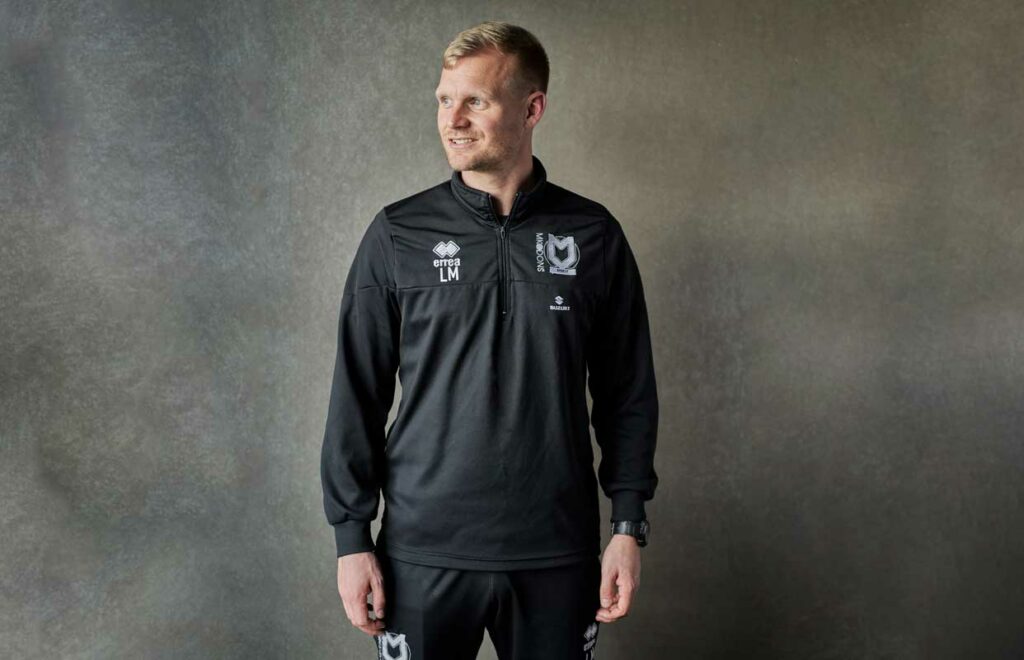
As things progressed, I got asked to do some other bits and pieces. I started to enjoy it more and more.
I was watching the youth-team coaches in my own time – partly because I got some enjoyment from it, but also because I was keen to learn.
I’d started out in coaching before the Premier League’s Elite Player Performance Plan came in, so there was less structure in place at the time. I was just given the Ipswich Under-13s and told to go off and coach them, which I took as a sign of their trust in me.
EPPP has done so much for the game. There are so many positives to it. But I actually feel grateful to have come into coaching before it. It meant I got thrown in at the deep end.
"A recruitment company asked if I’d be interested in a director of coaching role a little further afield than I’d gone before"
I was coaching as much as possible, helping out with a few different teams and a few different age groups. I was able to watch high-quality coaches like Bryan Klug, Steve Foley and Tony Humes in action, and I could also watch first-team training when I wanted to. It was a case of soaking up as much information as I could.
I was putting in the hard yards, coaching five nights a week, taking a game on a Saturday morning and driving a minibus to an away game on Sunday. On top of that, I was still trying to play as well.
It's more difficult to get those experiences now that EPPP is in place. As I said, it’s great for the game, and great for the coaches who progress quickly through the ranks. But I’m so happy I had to work as hard as I did.
I worked my way up at Ipswich, and learned from some brilliant coaches and mentors along the way.
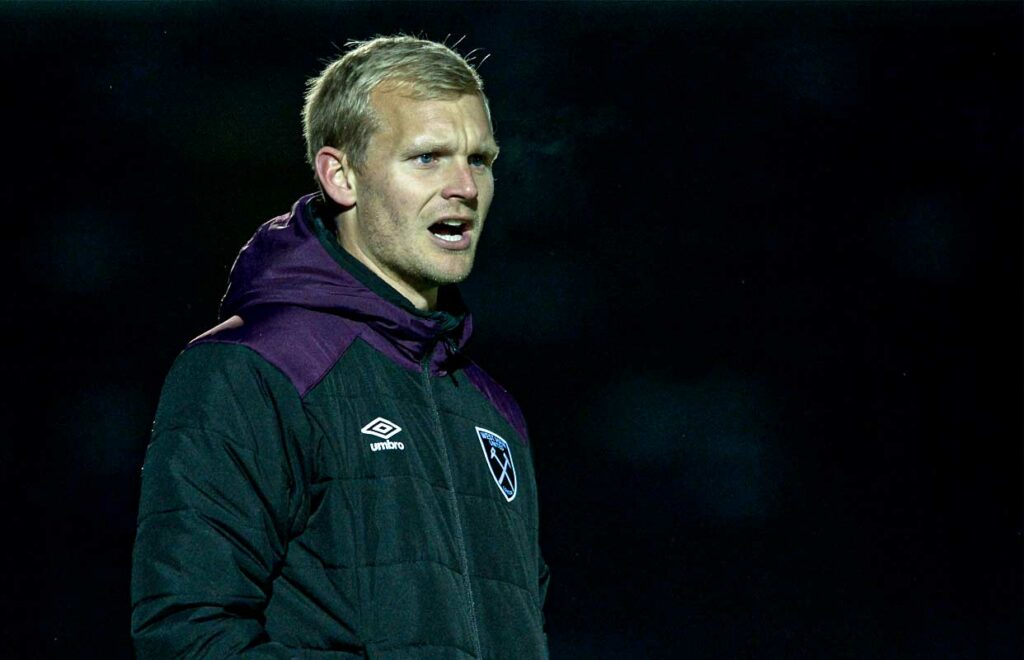
Bryan Klug played a massive part. The way he sees the game, and the players he’s developed, it was impossible not to find him an inspiration. He’s someone I still speak to.
Then there was Peter Trevivian. He was always going against the norm, challenging the common way of viewing the game and doing things differently. He never told me how to do anything, but the way he asked questions – he had this way of making you think about what you were doing in a different way.
Steve Foley showed me the importance of being able to connect with a player. He taught me about letting players know you cared about them, and how crucial that was to getting your messages across.
"they were very forward-thinking, and I also liked the multi-club model"
I moved to West Ham in 2015, and became their Under-23s head coach. There, Terry Westley had a massive impact on me. He worked at such an intensity. He never let himself get comfortable, and was always thinking about where he was going to turn next to evolve.
I had four years at West Ham, where I was also assistant academy director, before I got a call from a recruitment company.
They told me they were getting in touch to see if I’d be interested in a director of coaching role a little bit further afield than I’d gone before.
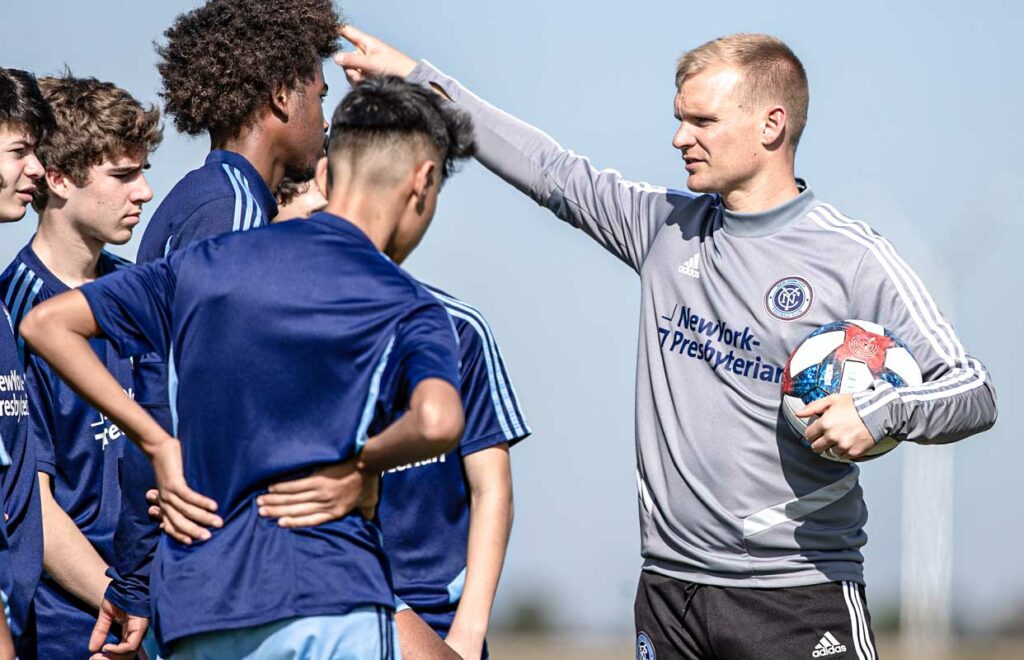
It was at New York City FC.
Some of the key people I’d worked with at West Ham – including Terry – were moving on. It felt like a bit of a transitional period for that part of the club.
The choice was whether to stay and drive the department at West Ham, or to go and have a life adventure.
I met with Claudio Reyna, New York City’s sporting director. He told me I’d have a lot of freedom to put my stamp on the academy.
"I decided to get out of my comfort zone, so We went to New York"
The club was only four years old, so I’d be left to take the bits from West Ham and EPPP that had been most successful. I could bring in the processes, the staff structure and the philosophy that I believed would best develop the players and staff. He said I could essentially build my own academy programme out there. It all sounded very appealing.
Then, on top of that, there was the fact that the club was part of the City Football Group. Their footballing philosophy was similar to mine, they were very forward-thinking, and the multi-club model was also something I liked.
Funnily enough, my wife and I had been talking about moving out of Colchester after she finished working to have our son – but we were actually thinking of moving closer to London. That was going to be our little adventure.
But then the New York opportunity came up. Luckily for me, my family were in a position where they were ready to move.
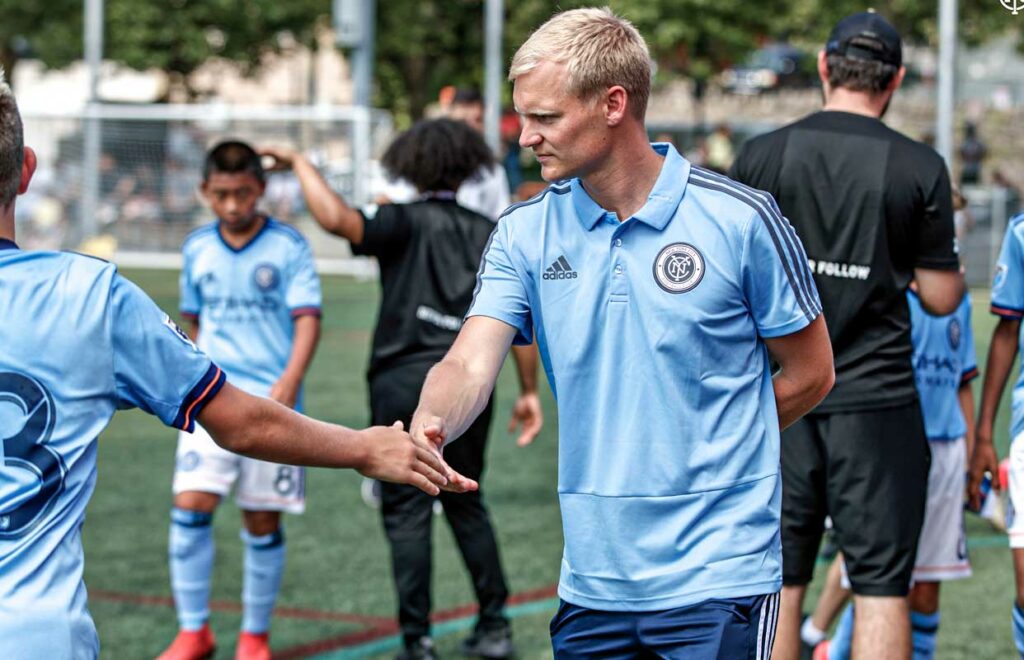
I decided to get out of my comfort zone. We went to New York.
It was so different to anything I’d experienced before. Beyond it being a different job to my previous roles, there was so much to get used to.
There were 42 different nationalities in the academy, and then 13 or 14 on the staff. As a result, I learned a great deal about the impact people’s upbringing and culture can have on them, and how to deal with some very new situations.
I needed to get everyone to buy into me and my philosophy pretty quickly, and not everyone there could be treated exactly the same.
"i knew nothing about lommel and my knowledge of Belgian football was limited"
Some people were happy to be quite confrontational about things, and others were far more measured. I owe a lot to the staff I had around me who helped me – and the young players – settle very quickly.
It was the first time I hadn’t been directly responsible for a specific team, so I was able to step back and reflect on my journey. I’d been doing six, seven, eight sessions and at least one match a week every week for 10 years. In this role, I was overseeing an entire academy. It was still full-on, but I was able to focus on developing some other skills.
My family and I knew New York was never going to be a long-term thing. I had a three-year visa, so we kind of thought that would be the limit. And I had conversations with others at the club, in which I said that I would want to get back into coaching at some point in the future. I knew I wanted to coach a team again.

Then, during the Covid pandemic, CFG bought Lommel SK in Belgium. They decided to change manager and, 13 months after I’d moved to New York, I ended up getting that job (above).
I knew absolutely nothing whatsoever about Lommel and my knowledge of Belgian football was limited, to say the least.
But having the support of CFG made a huge difference. There was a massive overhaul at the club, and they were clear about their expectations.
It wasn’t a lose-five-games-and-you’re-sacked situation. They knew it was a long-term project.
The club had been close to going bankrupt, so there was a chance to build something from nothing. That made it all the more exciting.
"we were trying to teach the players what is – in my opinion – the hardest way to play football"
Plus, it wasn’t like I had done anything via a conventional route up to that point. Going into the unknown at Lommel felt right.
But it wasn’t easy.
There were only six players there when I went in. I’d never met any of my staff before. I was the only English person at the club.
It wasn’t a new club like New York City, but I was asked to create a new, fresh, elite culture at Lommel – so there were some similarities to my previous role.
But I had no experience at all of building a squad from next to nothing.
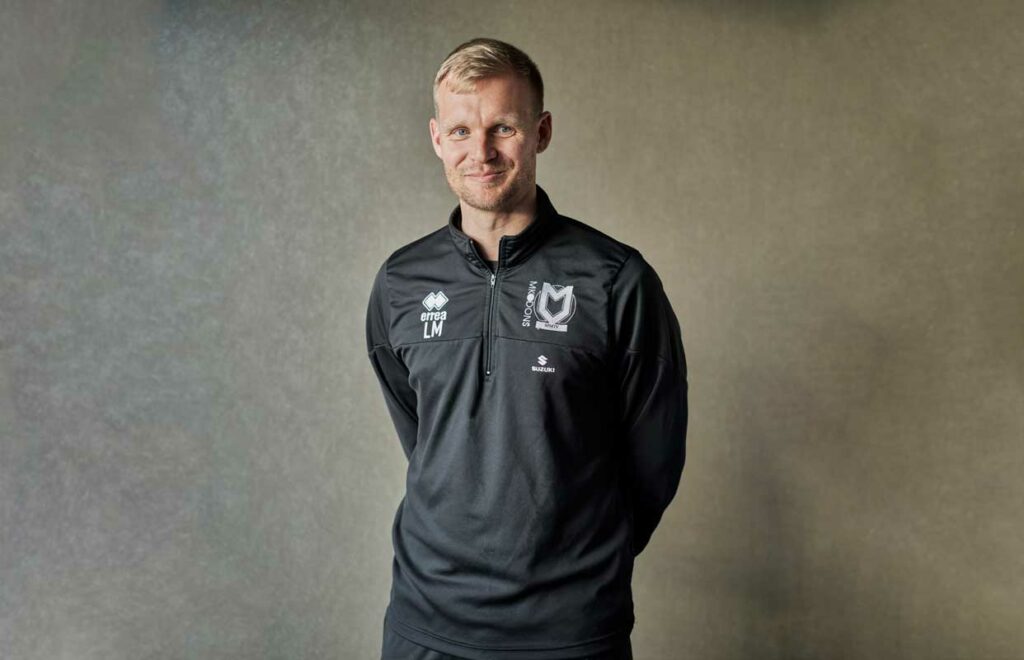
Luckily for me, although I was there for the meetings about recruitment and gave my opinions when I was asked, a large part of the recruitment was done through CFG’s scouting network. I was very grateful to have such a good team behind me to find players to improve our squad.
I was at the club as a head coach, and my focus was on the training ground.
That wasn’t without its challenges, though.
We had a very new squad, and a fair few players who spoke no English, so getting my ideas across to them was tricky. Then, the players who had been at the club when I arrived were used to playing with a low block, hardly any possession and hoping to nick a goal on a counter-attack or through a set-piece. Our plan was to play football at the complete opposite end of the spectrum.
"It was impossible not to get excited about the prospect of being MK Dons manager"
We had some difficult moments, because we were trying to teach them what is – in my opinion – the hardest way to play football. We wanted to dominate possession, create and exploit overloads, press high up the pitch and play attacking, high-intensity football.
Credit should go to the players for embracing it and taking on our ideas, but at the start we found it hard to turn our performances – and our commitment to this style of football – into wins.
We made real progress, though, and results picked up in the second half of the season. I wouldn’t have taken a third-place finish before the season started, but that’s what we got. Along with the improving performances, there was a lot to be pleased about.
The following pre-season was under way, and I was gearing up for another year in Belgium, when I got a call from Brian Marwood at CFG to say Milton Keynes Dons had been in touch. They wanted to have a chat with me.
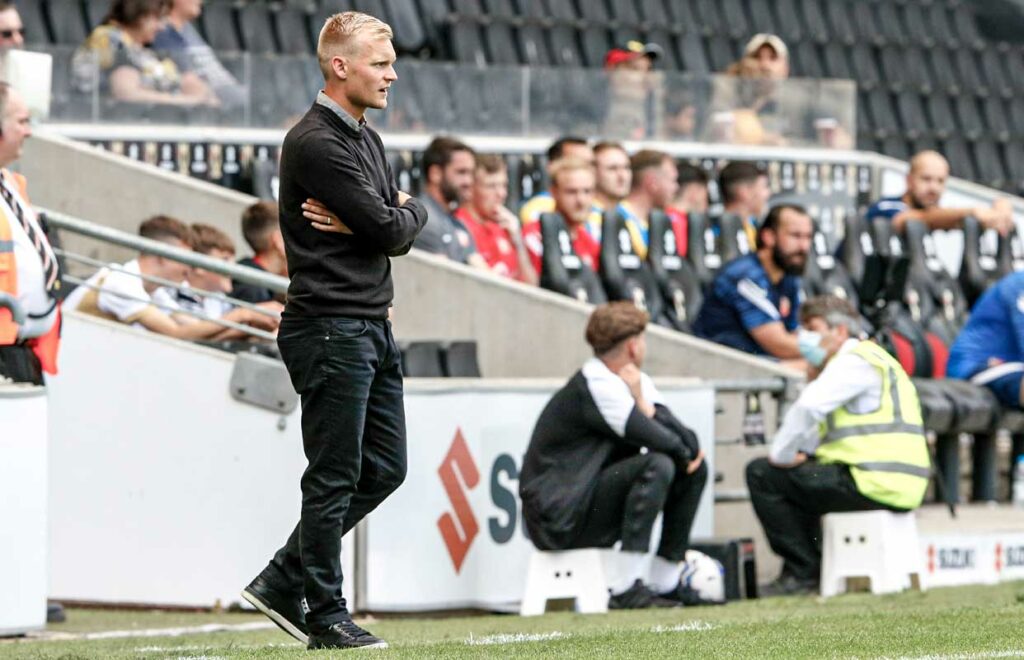
I went and met them, and ended up interviewing for the head coach's job. I’d got so much from CFG – I’d learned a great deal, and there had been open, honest and very exciting conversations about viable pathways for me.
But this was such a big opportunity for me that I just couldn’t turn it down.
I looked at the level of the players in the MK Dons squad. Knowing what the competition is like in League One, the sheer intensity of the football and the passion of the fans, I just couldn’t say no.
Also, when I spoke to Liam Sweeting, the sporting director, and Pete Winkelman, the chairman, it was clear that our views were aligned. When they spoke about where they wanted to get – as well as how they wanted to get there – it was impossible not to get excited about the prospect of being MK Dons head coach.
"I was lucky to have a group of players ready to embrace what I asked of them"
It was also a chance to return to England, which both my wife and I were up for.
Russell Martin, the previous manager, had used a similar style of football to mine, so it felt like quite a smooth transition on that front. The problem was the lack of time I had to get started.
I arrived on a Thursday in August 2021, met everyone on the Friday and then played Sunderland on the Saturday (above). Then we had another game on the Tuesday, and then another on the Saturday. It was relentless from very early on.
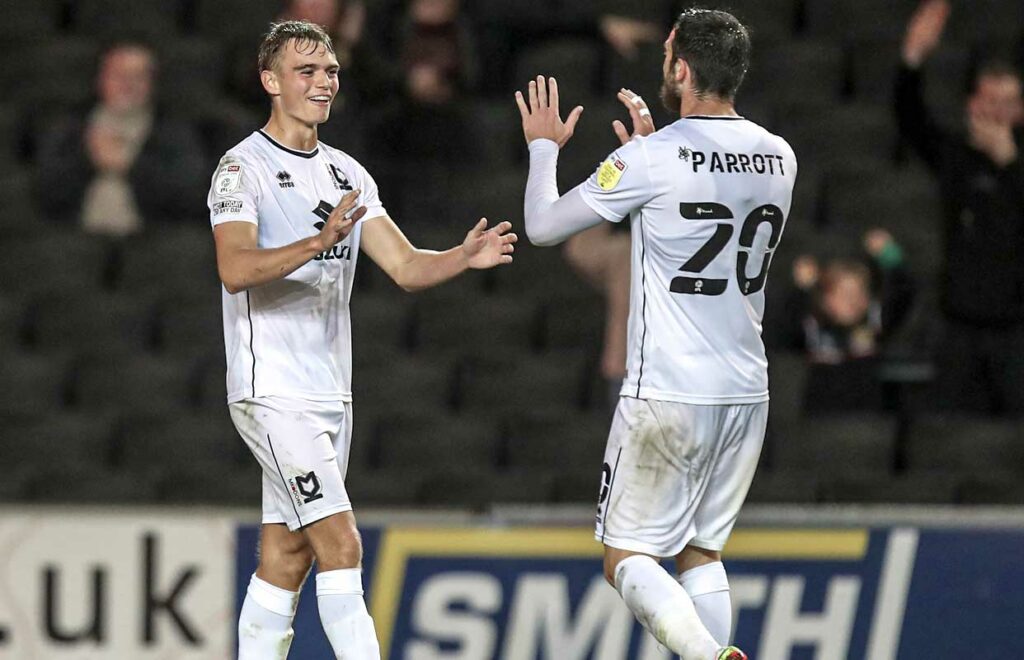
I think it was for that reason that those in charge were realistic. We all understood that it might take a little bit of time for us to get our messages across, and for the players to adapt.
In the longer term, we wanted progression. We wanted the talented group of players in the squad to develop as they could. We wanted to see them reach their potential. This, in turn, helps improve the team and, crucially, would help us win matches. There were no cold, hard targets, though.
The club did, however, want to play a specific type of football. I was lucky to have a group of players ready to embrace what was asked of them.
"In head-coach terms, I’m still a baby. I’ve got so many lessons to learn"
Our possession-based game is about empowering the players. We want them to have the agency and to feel brave enough to make decisions during games.
We want the team to dominate the ball, but we also want to be unpredictable and adaptable. So, for example, if the opposition come at us with a high press and leave space in behind, we will target that space – whether it’s off one pass or four passes, or going around or through them. Our football is about the players solving problems on the pitch; I don’t want to be telling them every single action they have to make.
We made a good start, and I was named manager of the month for September. We were third in the table at the end of the month.
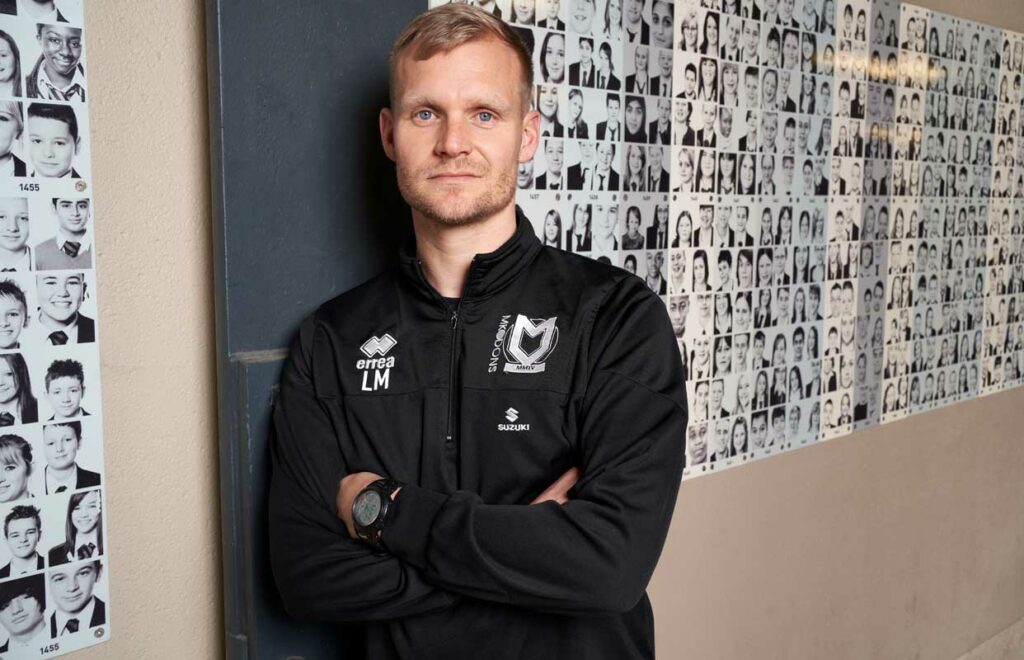
Although I’m very proud to have won it, the award itself didn’t sit too well with me. There are so many people working to make things go as well as they did, so for me to have an individual award for their hard work doesn’t make that much sense. It’s obviously a prestigious award, but it should have gone to all of the staff, really. We were doing well, but it was very much a team effort.
In head-coach terms, I’m still a baby. I’ve got so many lessons to learn.
At MK Dons, I look forward to coming in every day. I’ve got an incredible group around me, who share my ambitions to take this club and its players where they have the potential to go.
Hopefully I’ll have a fair few more special, memorable moments along the way.

Liam Manning


